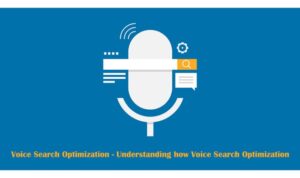SEO for Beginners – for Beginners sets the stage for this enthralling narrative, offering readers a glimpse into a story that is rich in detail and brimming with originality from the outset. Dive into the world of with a fresh perspective that will leave you wanting more.
In this guide, we’ll explore the fundamentals of , from on-page and off-page strategies to essential tools and local tactics. Get ready to elevate your website’s visibility and reach new heights in the digital landscape.
What is ?
, or Search Engine Optimization, is the practice of optimizing websites to increase their visibility on search engines like Google. It involves various strategies and techniques to improve a website’s ranking in search results, ultimately driving more organic traffic to the site.
Importance of for Websites
is crucial for websites for several reasons:
- Increased Visibility: By optimizing for relevant s, helps websites appear higher in search results, making them more visible to potential visitors.
- Organic Traffic: Ranking well in search engines leads to more organic traffic, as users are more likely to click on top results.
- Credibility and Authority: Websites that rank well are often seen as more credible and authoritative in their respective industries.
Examples of Impact on Online Visibility
can have a significant impact on a website’s online visibility. Here are a few examples:
- A website that ranks on the first page of Google for a high-volume can see a substantial increase in traffic compared to those on subsequent pages.
- Optimizing meta tags and descriptions can improve click-through rates from search results, leading to more visits to the site.
- Creating high-quality and relevant content can attract backlinks from other websites, further boosting the site’s authority and visibility.
On-Page

When it comes to on-page , it’s all about optimizing the content and structure of your website to improve its visibility and ranking on search engines. This involves focusing on elements that are directly within your control on your website itself.
Key Elements of On-Page
- Quality Content: Creating high-quality, relevant, and engaging content is crucial for on-page . This includes using targeted s naturally throughout your content.
- Title Tags and Meta Descriptions: Optimizing title tags and meta descriptions with relevant s can improve click-through rates and search engine rankings.
- URL Structure: Having a clean and descriptive URL structure that includes s can help search engines understand the content of your pages.
- Internal Linking: Linking to other relevant pages on your website helps search engines navigate and index your site more effectively.
- Image Optimization: Optimizing images with descriptive alt text and relevant filenames can improve accessibility and .
Optimizing Website Content for On-Page
- Research and Use Relevant s: Conduct research to identify the terms your target audience is searching for and strategically incorporate them into your content.
- Create Engaging and Informative Content: Focus on creating valuable content that addresses the needs and interests of your audience to keep them engaged and coming back for more.
- Optimize Page Titles and Meta Descriptions: Craft compelling titles and meta descriptions that accurately represent the content on each page and include relevant s.
- Improve Page Loading Speed: Ensure that your website loads quickly on all devices to provide a better user experience and improve rankings.
- Mobile Optimization: With the increasing use of mobile devices, it’s essential to optimize your website for mobile users to improve rankings and user experience.
Comparison of On-Page with Off-Page
- On-Page focuses on optimizing factors within your website, such as content and structure, to improve search engine rankings. In contrast, Off-Page involves external factors like backlinks and social signals to enhance your site’s authority and credibility.
- While On-Page is more under your direct control, Off-Page requires building relationships and earning links from other websites to boost your site’s ranking.
- Both On-Page and Off-Page are essential components of a comprehensive strategy, working together to improve your website’s visibility and attract more organic traffic.
Off-Page : SEO For Beginners
Off-page refers to all the activities that are done outside of your website to improve its search engine rankings. While on-page deals with optimizing content and HTML source code on your site, off-page focuses on enhancing factors that are not directly related to your website.
Role of Backlinks
Backlinks play a crucial role in off-page as they are essentially a vote of confidence from one site to another. When a website links to your site, search engines view it as a signal that your content is valuable and trustworthy. The more high-quality backlinks you have from reputable sites, the higher your site is likely to rank in search engine results pages (SERPs).
- Focus on quality over quantity when it comes to backlinks. A few high-quality backlinks from authoritative sites are more valuable than numerous low-quality backlinks.
- Engage in guest blogging on relevant websites to earn backlinks. Make sure to provide valuable and informative content that will entice readers to visit your site.
- Utilize social media platforms to promote your content and attract backlinks. Sharing your content on social media can increase visibility and encourage others to link back to your site.
- Monitor your backlink profile regularly and disavow any toxic or spammy backlinks that could harm your efforts.
Tools
In the world of , having the right tools can make a huge difference in optimizing websites and monitoring performance. Here are some essential tools for beginners to consider:
Research Tools, SEO for Beginners
When it comes to , research is key. Tools like Google Planner, SEMrush, and Ahrefs can help you identify the best s to target for your website. These tools provide valuable insights into search volume, competition, and related s, allowing you to optimize your content effectively.
On-Page Tools
Tools like Yoast and Moz Pro offer features that can help you optimize your on-page content. From checking for density to analyzing meta tags and headings, these tools ensure that your website is fully optimized for search engines. They also provide recommendations for improving your content to boost search rankings.
Backlink Analysis Tools
Backlinks play a crucial role in , and tools like SEMrush and Ahrefs can help you analyze your backlink profile. These tools allow you to monitor your backlinks, identify toxic links, and find new link building opportunities. By keeping track of your backlinks, you can improve your website’s authority and credibility in the eyes of search engines.
Site Audit Tools
Performing regular site audits is essential for maintaining a healthy website. Tools like Screaming Frog and Google Search Console can help you identify technical issues, broken links, and other issues that may be affecting your performance. By fixing these issues, you can ensure that your website is running smoothly and optimized for search engines.
Benefits of Using Tools
Using tools offers numerous benefits for monitoring website performance. These tools provide valuable insights and data that can help you make informed decisions about your strategy. By utilizing these tools, you can track your progress, identify areas for improvement, and ultimately achieve better search rankings. Overall, tools are essential for optimizing websites and ensuring long-term success in the competitive world of search engine optimization.
Local

Local refers to the practice of optimizing a business’s online presence to attract more customers from relevant local searches. It is crucial for businesses looking to target a specific geographic area and increase their visibility to local customers.
Significance of Local
Local is essential for businesses because it helps them connect with potential customers in their area, drive foot traffic to physical stores, and improve their online visibility. By focusing on local search optimization, businesses can increase their chances of showing up in local search results and reaching their target audience effectively.
Tips for Improving Local Rankings
- Optimize your Google My Business listing with accurate information, photos, and reviews.
- Create local content targeting specific s related to your location.
- Build local citations and backlinks from relevant websites.
- Encourage happy customers to leave positive reviews online.
- Ensure your website is mobile-friendly and optimized for local search.
Examples of Businesses Benefiting from Local Strategies
- A local coffee shop that saw an increase in foot traffic and online orders after optimizing their Google My Business listing and local s.
- A neighborhood bakery that gained more visibility in local search results and attracted new customers through positive online reviews and local citations.
- A small boutique clothing store that saw growth in sales after implementing a local strategy focused on local content and backlink building.





